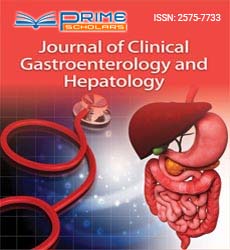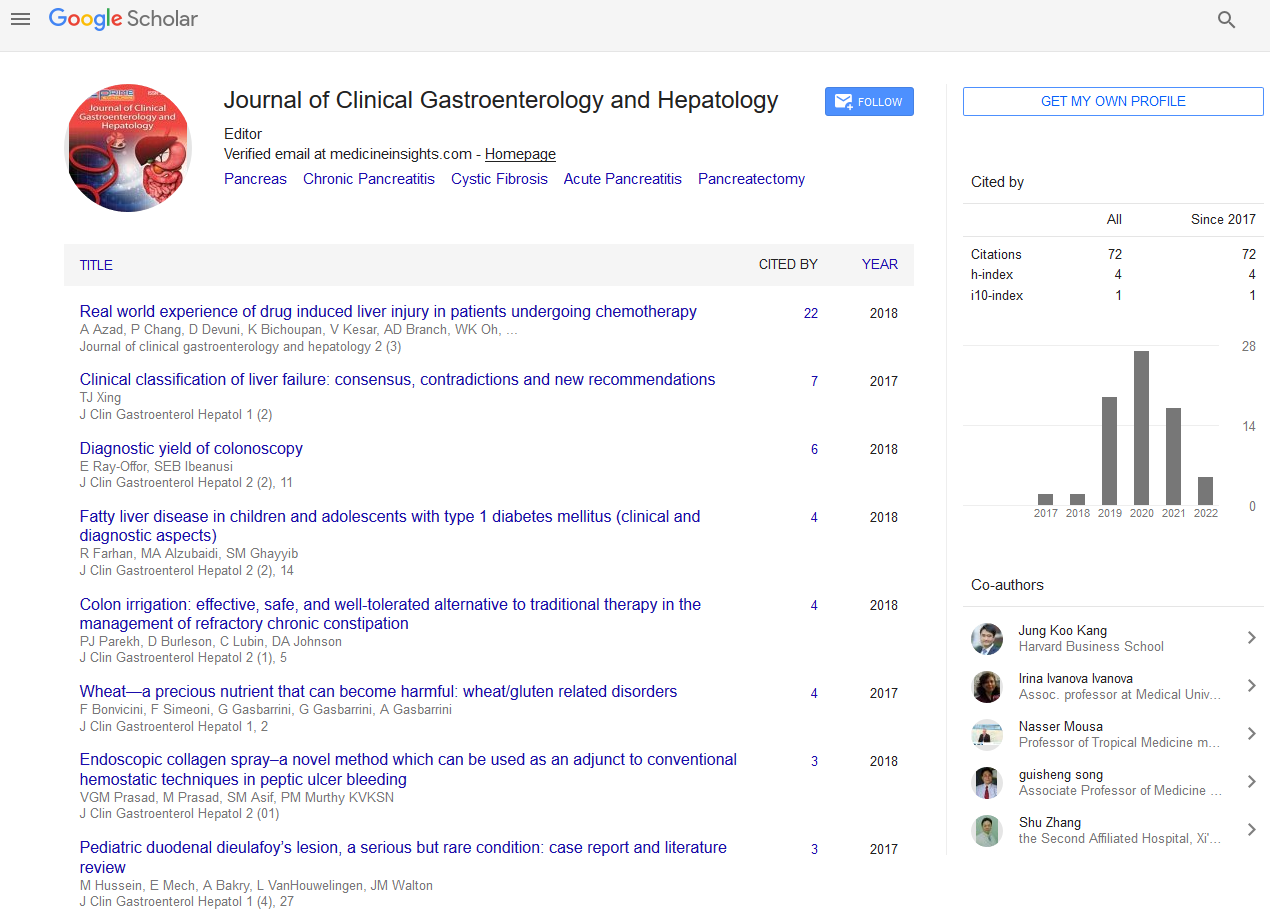Commentary - (2023) Volume 7, Issue 6
Understanding Colorectal Cancer: Causes, Symptoms, and Prevention
Hinata Ren*
Department of Anatomy, Kyoto University, Japan
*Correspondence:
Hinata Ren,
Department of Anatomy, Kyoto University,
Japan,
Email:
Received: 29-Nov-2023, Manuscript No. IPJCGH-24-18979;
Editor assigned: 01-Dec-2023, Pre QC No. IPJCGH-24-18979 (PQ);
Reviewed: 15-Dec-2023, QC No. IPJCGH-24-18979;
Revised: 20-Dec-2023, Manuscript No. IPJCGH-24-18979 (R);
Published:
27-Dec-2023, DOI: 10.36648/2575-7733.7.6.56
Description
Colorectal cancer, a type of cancer that affects the colon or
rectum, is a significant public health concern globally. With its
prevalence on the rise, understanding the causes, symptoms,
and prevention strategies is crucial for early detection and
effective management. In this article, we will explore key
aspects of colorectal cancer to promote awareness and
encourage proactive health measures. Colorectal cancer often
develops from precancerous polyps that grow in the colon
or rectum. These polyps can become cancerous over time,
leading to the formation of tumors. While the exact cause of
colorectal cancer is not fully understood, several risk factors
contribute to its development. These include age, family
history of colorectal cancer or polyps, a personal history of
inflammatory bowel disease, certain genetic conditions, and
lifestyle factors such as a diet high in red or processed meats,
low-fiber diets, lack of physical activity, obesity, and excessive
alcohol consumption. Early stages of colorectal cancer may not
exhibit noticeable symptoms, underscoring the importance of
regular screenings, especially for individuals with risk factors.
As the disease progresses, common symptoms may include
changes in bowel habits, persistent abdominal discomfort,
blood in the stool, unexplained weight loss, and fatigue. It is
crucial to consult a healthcare professional if these symptoms
persist, as early detection significantly improves the chances of
successful treatment. Routine screenings for colorectal cancer
are pivotal for early detection. Common screening methods
include colonoscopies, fecal occult blood tests, and flexible
sigmoidoscopies. These procedures help identify polyps or
cancerous growths in the early stages when treatment is more
effective. Screening is generally recommended for individuals
aged 45 and older, although those with higher risk factors
may need to start screening earlier. If colorectal cancer is
diagnosed, the treatment plan will depend on the stage of the
cancer, its location, and the overall health of the individual.
Treatment options may include surgery to remove tumors
or affected portions of the colon or rectum, chemotherapy,
radiation therapy, targeted therapies, and immunotherapy.
The multidisciplinary approach often involves a combination
of these treatments tailored to the specific characteristics of
the cancer. Several lifestyle modifications can reduce the risk of
developing colorectal cancer. Adopting a healthy, balanced diet
rich in fruits, vegetables, and whole grains while limiting the
intake of red and processed meats is crucial. Regular physical
activity and maintaining a healthy weight contribute to overall
well-being and may lower the risk of colorectal cancer. Avoiding
tobacco and moderating alcohol consumption also play a role
in prevention. Colorectal cancer is a serious health concern,
but with proactive measures, it is possible to reduce the risk
and detect the disease at an early, treatable stage. Regular
screenings, a healthy lifestyle, and awareness of potential
symptoms are key components in the fight against colorectal
cancer. As research continues to expand our understanding
of this disease, ongoing efforts in education and preventive
healthcare are essential to making strides in reducing its
impact on individuals and communities worldwide. Early
detection remains a cornerstone in the battle against colorectal
cancer. Regular screenings not only aid in identifying cancerous
growths at an early stage but also allow for the removal of
precancerous polyps before they become malignant.
Acknowledgement
None.
Conflict Of Interest
The authors declare that they have no conflict of interest.
Citation: Ren H (2023) Understanding Colorectal Cancer: Causes, Symptoms, and Prevention. J Clin Gastroenterol Hepatol. 7:56.
Copyright: © 2023 Ren H. This is an open-access article distributed under the terms of the Creative Commons Attribution License,
which permits unrestricted use, distribution, and reproduction in any medium, provided the original author and source
are credited.

